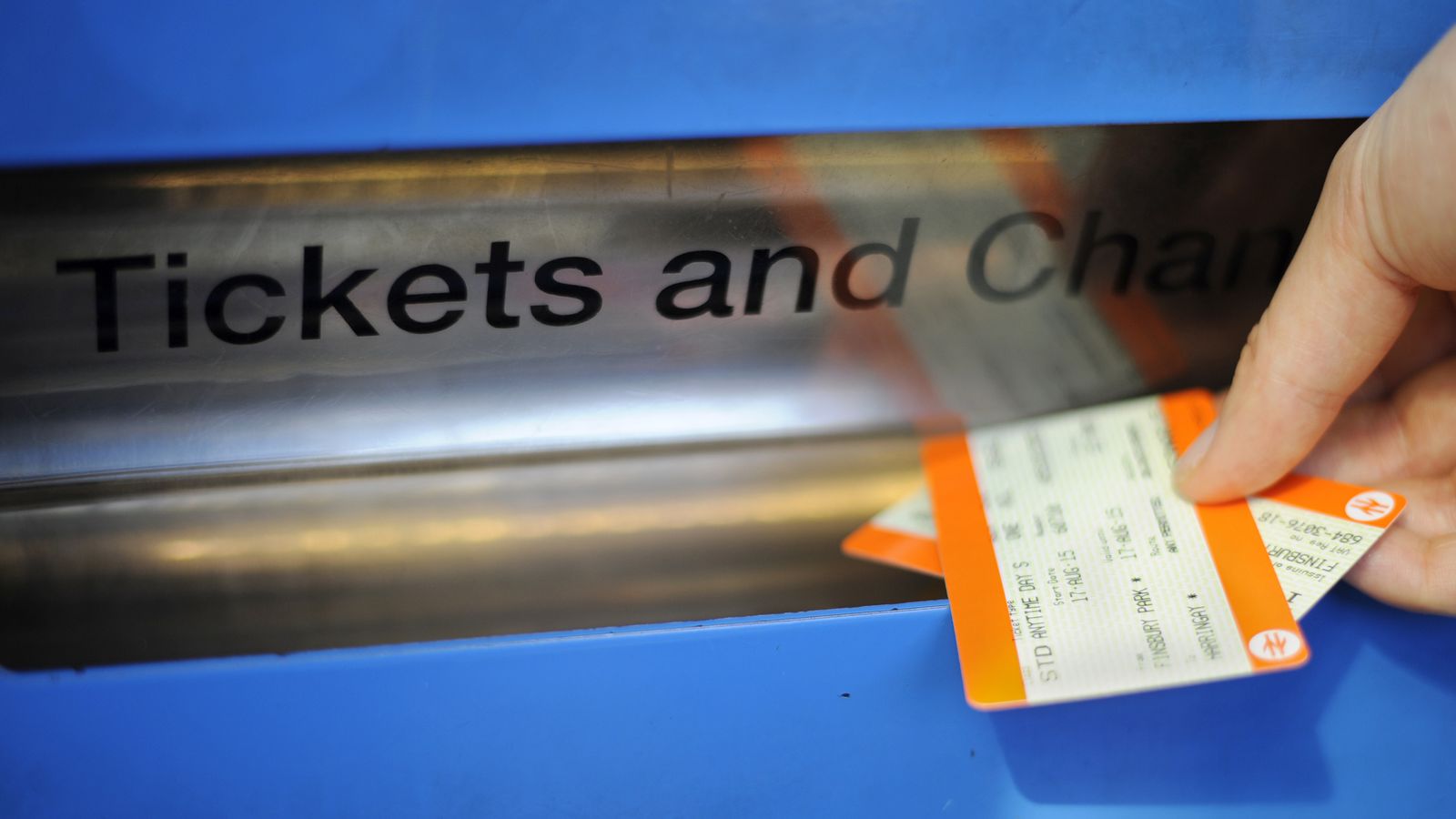Many train fares will rise below the rate of inflation next year to help travellers cope with the cost-of-living crisis, the government has announced.
The price increase for England, which before the coronavirus pandemic was introduced in January each year, will also again be delayed until March to ease the burden on “struggling households”, the Department for Transport said.
The amount rail fares increase each year is calculated using the retail prices index (RPI) measure of inflation from the previous July.
The usual formula is RPI plus 1%.
RPI in June was 11.8%, but ahead of the rate for 2023 being announced on Wednesday, the DfT has confirmed it would not be increasing fares as much as the July figure, but it is not yet clear how much lower the rise will be.
A DfT Spokesperson said: “The government is taking decisive action to reduce the impact inflation will have on rail fares during the cost of living crisis and will not be increasing fares as much as the July RPI figure.
“We are also again delaying the increase to March 2023, temporarily freezing fares for passengers to travel at a lower price for the entirety of January and February as we continue to take steps to help struggling households.”
However, it still leaves passengers facing steep rises as other household costs spiral, including energy bills.
The commitment only covers around 45% of rail fares that are regulated by the government.
This includes season tickets on most commuter journeys, some off-peak return tickets on long-distance journeys and anytime tickets around major cities.
Subscribe to the Daily podcast on Apple Podcasts, Google Podcasts, Spotify, Spreaker
Earlier this year saw the largest hike in rail fares in nearly a decade with a rise of up to 3.8% in England and Wales, which added more than £100 to the cost of many annual season tickets.
The COVID-19 crisis led to a sharp drop in the number of rail passengers with the dramatic shift to home working and have still not recovered.
It comes as rail industry bosses and the Aslef union are expected to hold formal talks in the coming days after a strike on Saturday again caused disruption on large parts of the UK network.
Further walkouts are also planned on 18 and 20 August in a row over pay and conditions by members of the RMT and TSSA unions while industrial action will be taken on 19 August by London Underground and London bus drivers.
